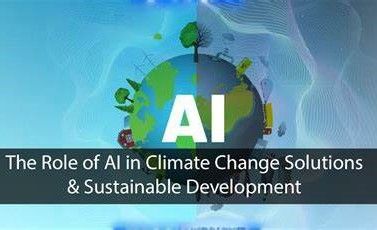AI can revolutionize climate education by personalizing learning, automating content creation, and enhancing engagement. In schools, AI tutors, gamified lessons, and virtual labs make climate science interactive. For vocational training, AI supports green job skills (e.g., renewable energy tech) via AR simulations and micro-courses. AI-generated teaching materials, real-time climate data tools, and multilingual resources help educators. Assessments can leverage AI for grading and bias detection, while institutions use AI to optimize curricula and track carbon footprints. Student projects, teacher training, and debates on AI’s ethical role in climate action further deepen impact. Together, AI and green education prepare learners for sustainable futures.
